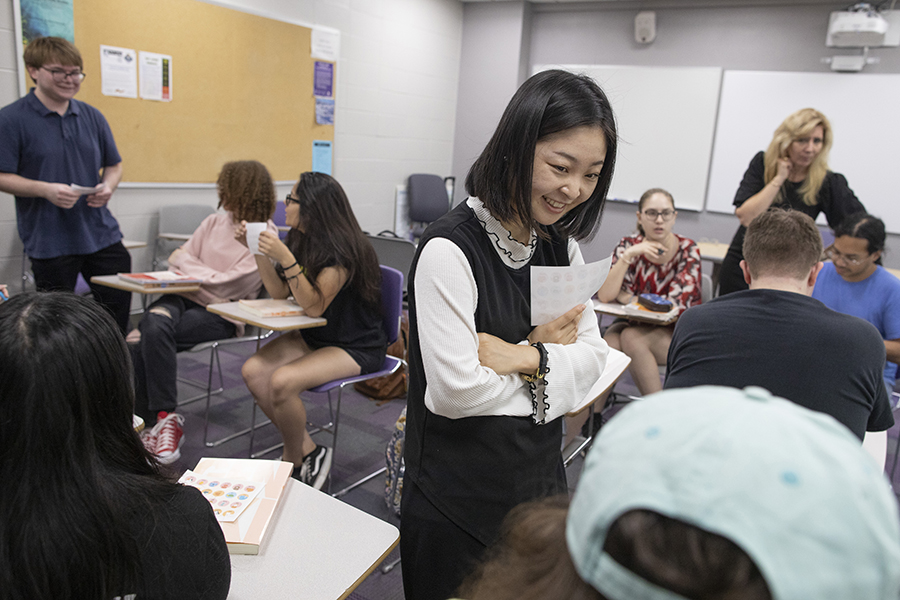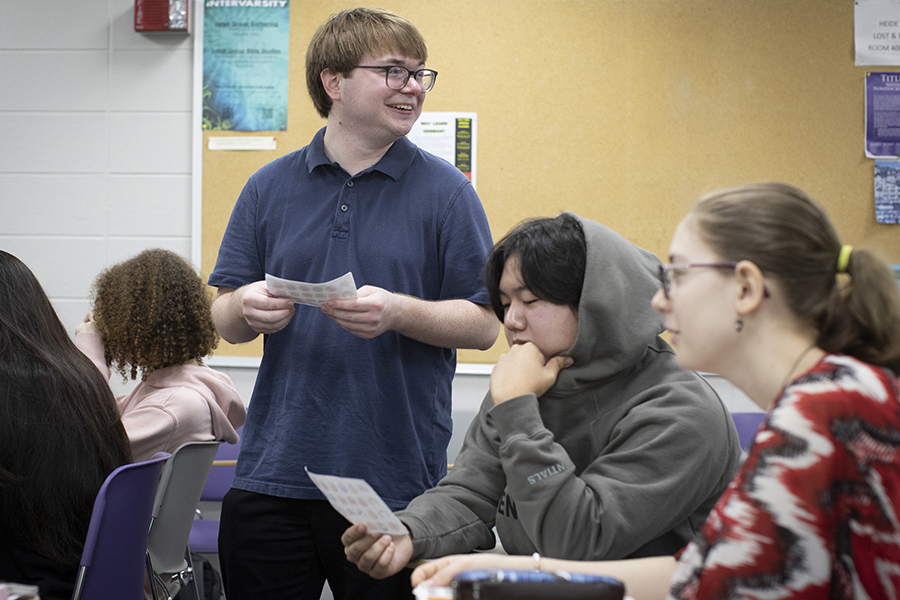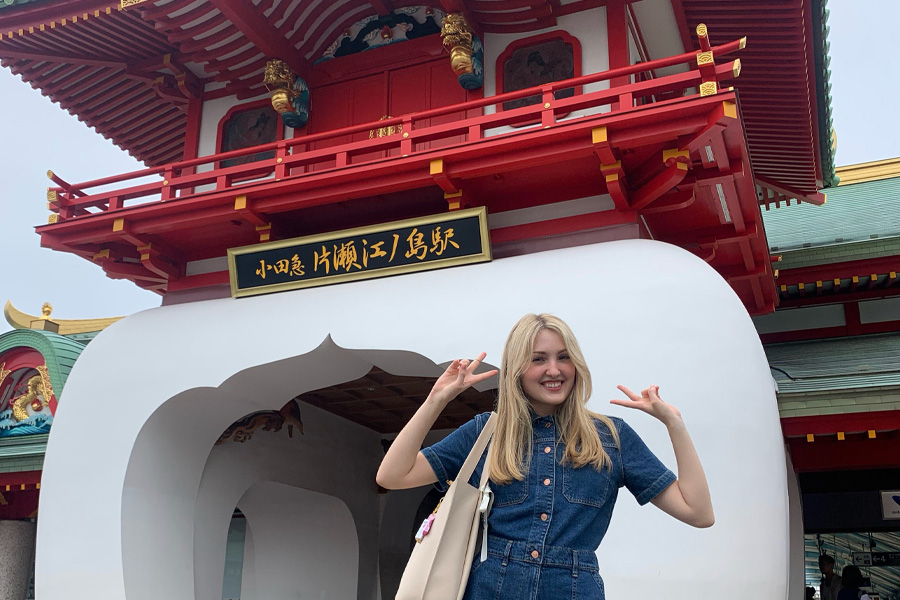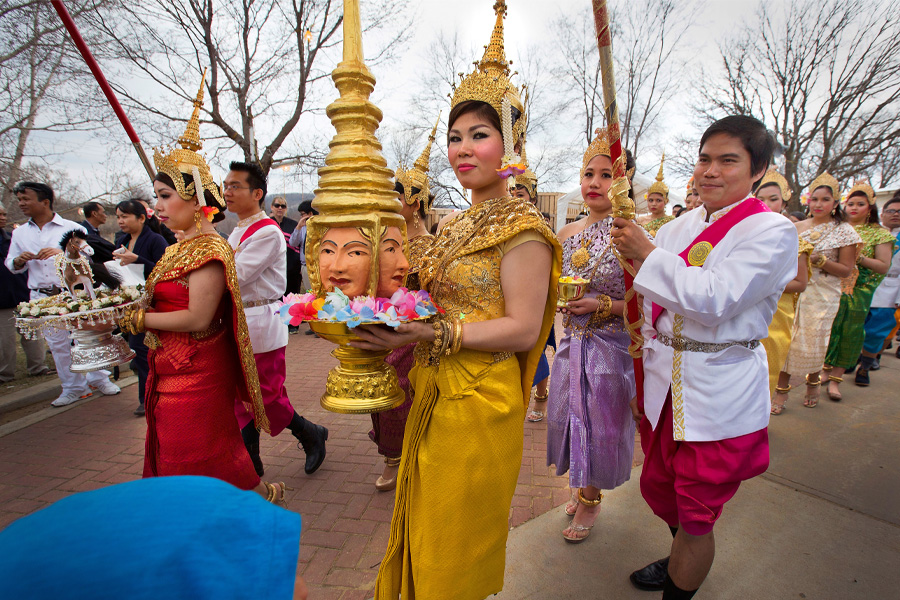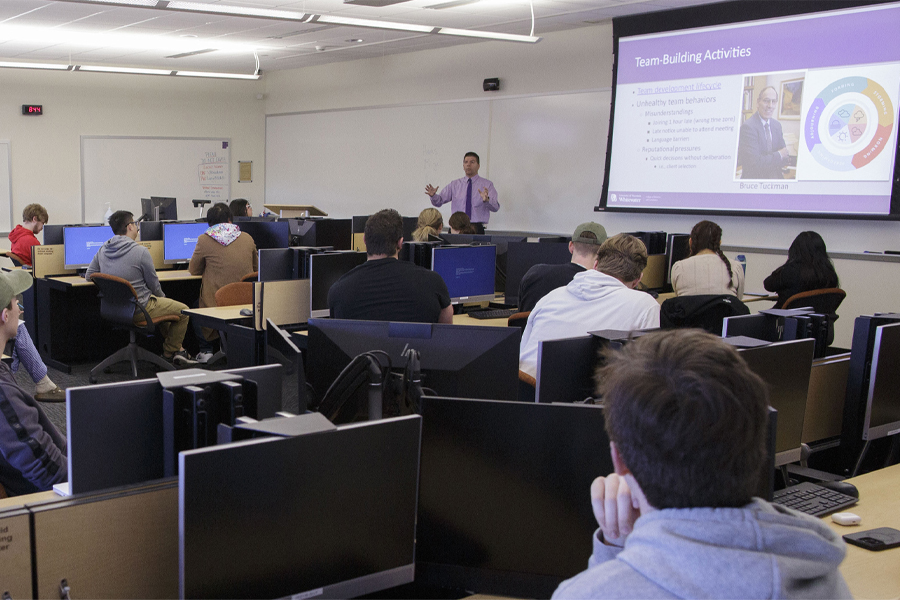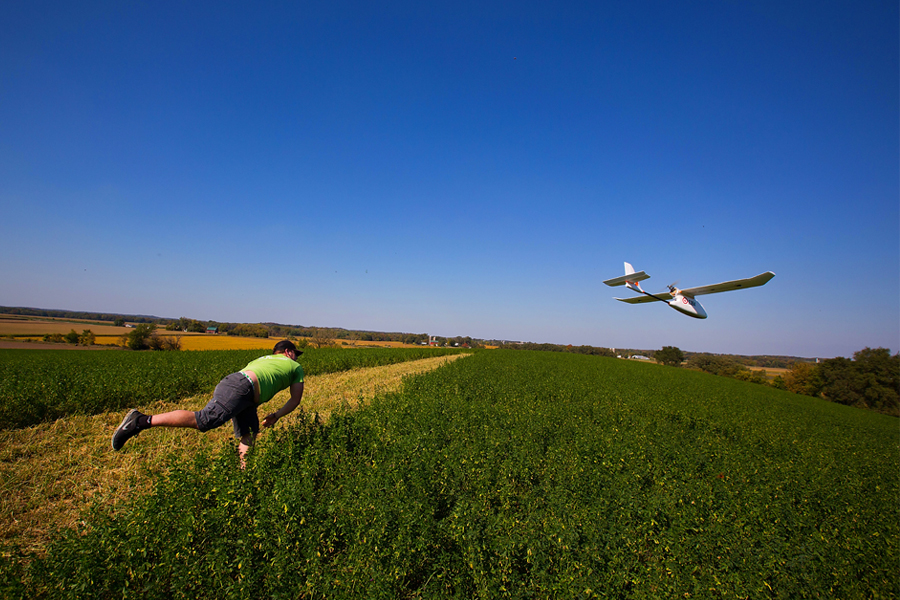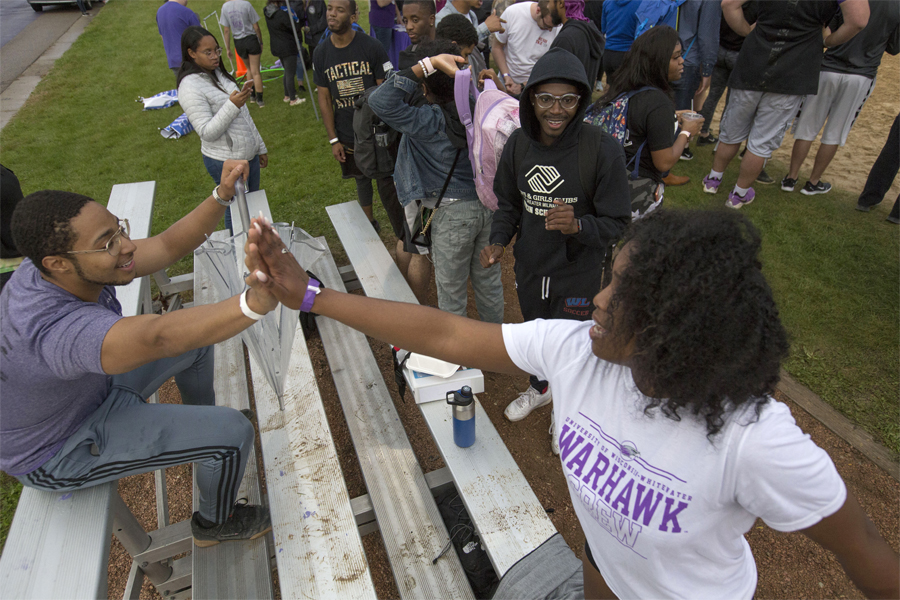JAPANESE STUDIES
Bachelor’s Degree Programs
Open doors to another part of the world.
A major in Japanese Studies presents opportunities to learn about the language and culture of one of the world’s largest economies and to travel to another part of the world.
As a Japanese Studies major, you’ll have the opportunity to develop proficiency in the Japanese language, one of the most used languages on the Internet, and a broad understanding of Japan – the world’s third-largest economy and an important partner of the United States. This interdisciplinary program offers six levels of Japanese language courses as well as courses on Japanese history, politics, culture, religion, society, geography, and gender and family relations. Students also have the opportunity to travel to Japan for an internship, travel study, or study abroad program.
Students who complete the Japanese studies program will have the opportunity to work in several areas of employment. Some of the most popular occupations for workers with a foreign language degree, according to the U.S. Department of Labor, include:
- Educational instruction and library
- Management
- Business and financial operations
- Office and administrative support
- Healthcare practitioners and technical
CAN WE BRAG A LITTLE?
Why major in Japanese Studies at UW-Whitewater?
A consistent, flexible learning environment.
UW-Whitewater has a dedicated Japanese language instructor teaching a six-course sequence of the Japanese language. Students wishing to take more advanced language courses are able to do so online through a collaboration with UW-Oshkosh.
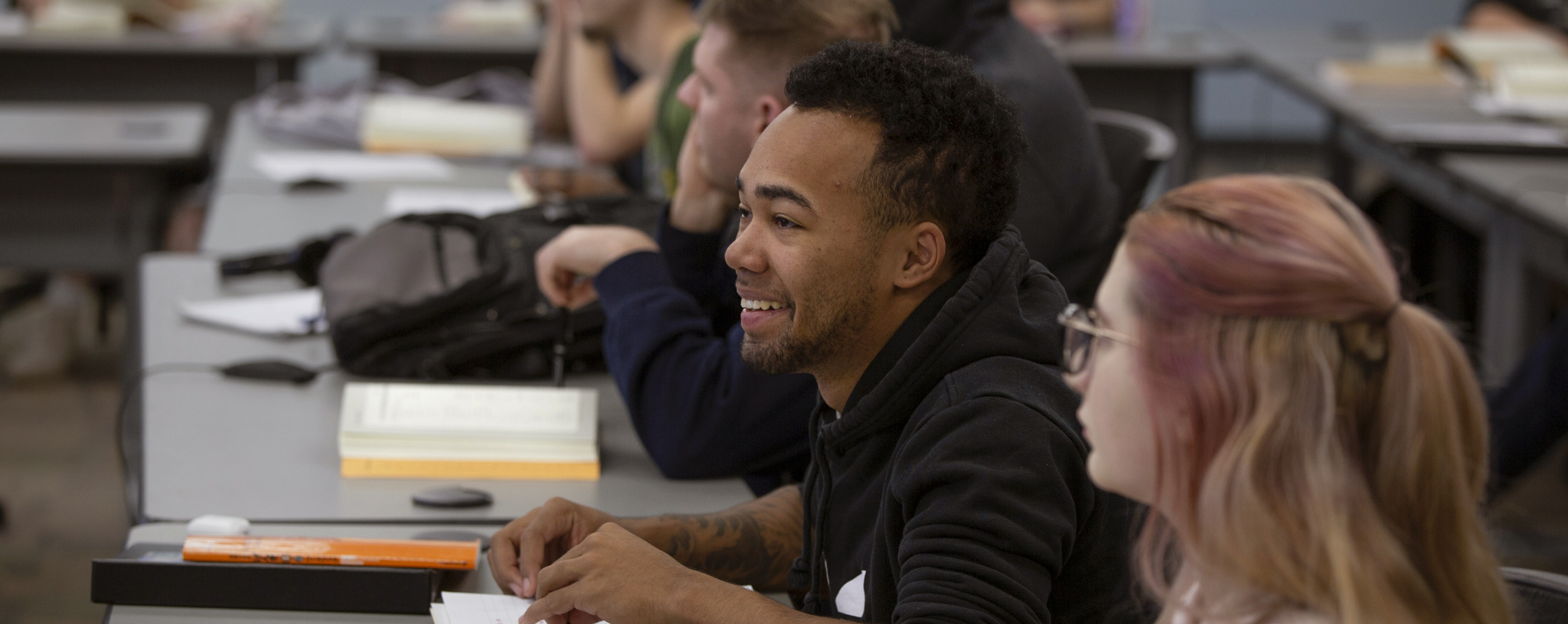
Tutors in Japanese Studies are available through UW-Whitewater’s Campus Tutorial Services. There is no extra charge for tutoring — services are already included as part of your tuition.
Students have combined their interest in Japanese with a degree in political science, business, education, history, media arts and game development, international studies, and science.
At the conclusion of their studies, all UW-Whitewater Japanese Studies majors take a nationally recognized Japanese proficiency exam.
What our Japanese Studies students do
Hands-on learning experiences
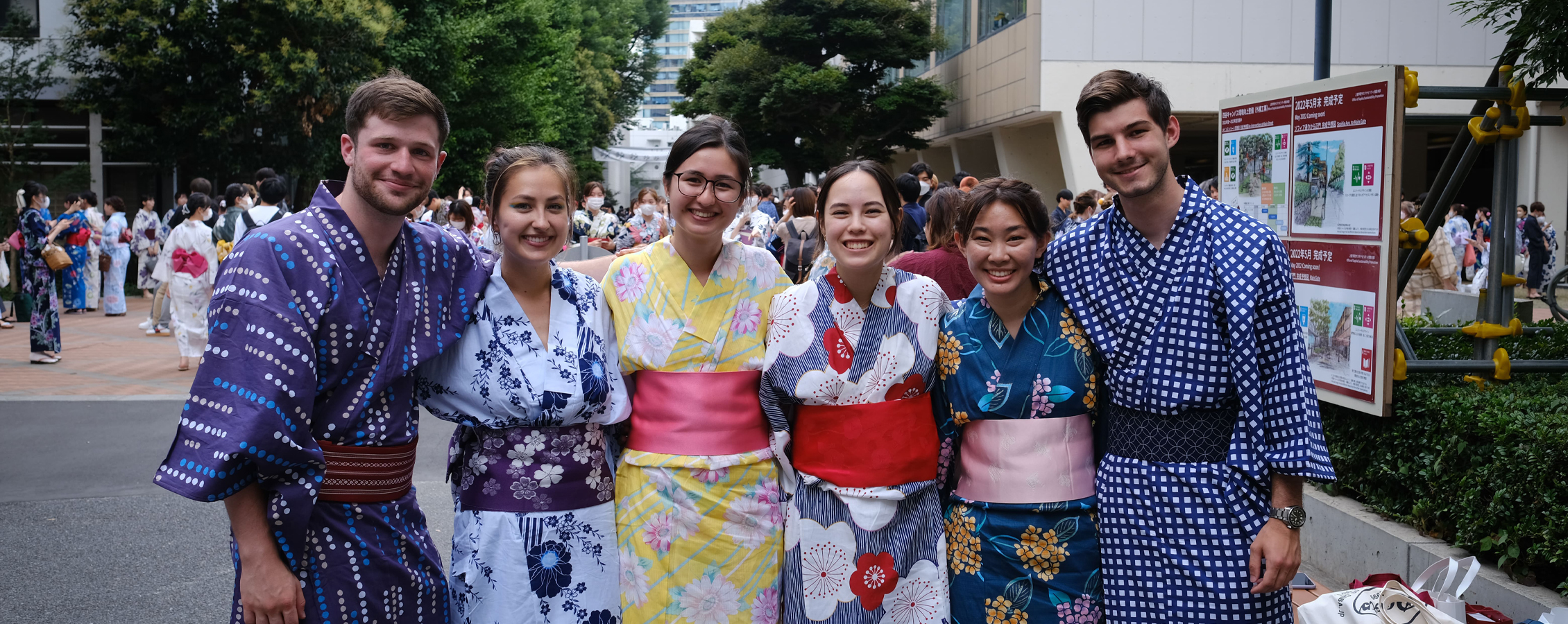
Immersion into Japanese culture is critical for Japanese Studies majors. To this end, there are great opportunities at UW-Whitewater to travel and study abroad. We also offer scholarships to help fund your travel, like the competitive Japanese Studies Major scholarship. Japanese Studies majors can apply to the scholarship as part of the general scholarship application process.
Exchange programs
Nearly all Japanese Studies majors and many of our minors take part in semester- or year-long exchange programs in Japan through either Sophia University in Tokyo or Kansai Gaidai University in Hirakata.
Summer internships
UW-Whitewater Japanese Studies also partners with GHJ International to provide summer internship opportunities for students as camp counselors or English instructors in Japan.
Campus and community involvement
As a Japanese Studies major, you might be interested in participating in UW-Whitewater’s Anime Club or Weekly Japanese Conversation Tables.
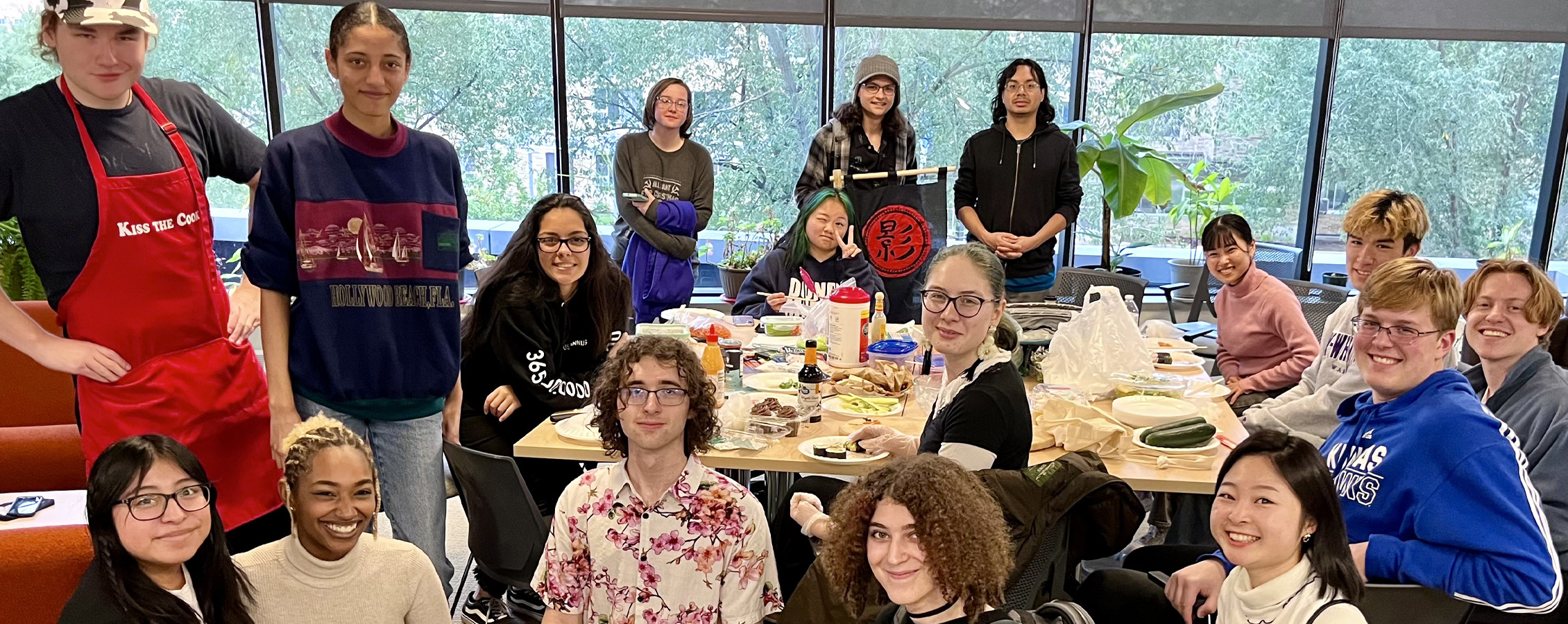
Space and places: On and off campus
UW-Whitewater’s Center for Global Education is here on campus to support students looking to travel and study abroad. The office assists students with searching and applying for programs and holds an annual Study Abroad Fair each fall to highlight different opportunities and showcase the office’s resources.
What our graduates do
Careers: What can you do with a Japanese Studies degree?
After earning their degree in Japanese Studies, UW-Whitewater graduates find a variety of positions in various sectors. Here’s a sample of organizations and job positions:
- Japan Exchange and Teaching (JET) program
- English teacher in Daegu, South Korea
- UW-Whitewater Office of Global Experiences
Our faculty
The Japanese Studies faculty at UW-Whitewater is interdisciplinary, drawing on the expertise of faculty across several departments, including geography, history, political science, philosophy and religious studies, and sociology, criminology and anthropology.
Students also have the opportunity to learn from native-speaking Japanese language instructors through UW-Whitewater’s partnership with the Alliance for Language Learning and Education Exchange (ALLEX) Japanese Teaching Fellow program.
Want to learn more about earning an Japanese Studies degree?
262-472-7173 | burkhamj@uww.edu
UW-Whitewater offers the following Japanese Studies undergraduate options:
Minors:
Students will have plenty of flexibility to explore electives based on their Japanese Studies career interests. Here’s just a sampling of the electives across geography, political science, sociology and other subjects you can choose from:
- Japanese Literature
- Gender and Family in Japan
- Contemporary Japanese Society
- The East Asian Tradition
- Geography of East Asia
- Government and Politics of Asia
To apply, you’ll complete the UW-Whitewater standard application for admission and indicate your interest in earning a degree in Japanese Studies.


